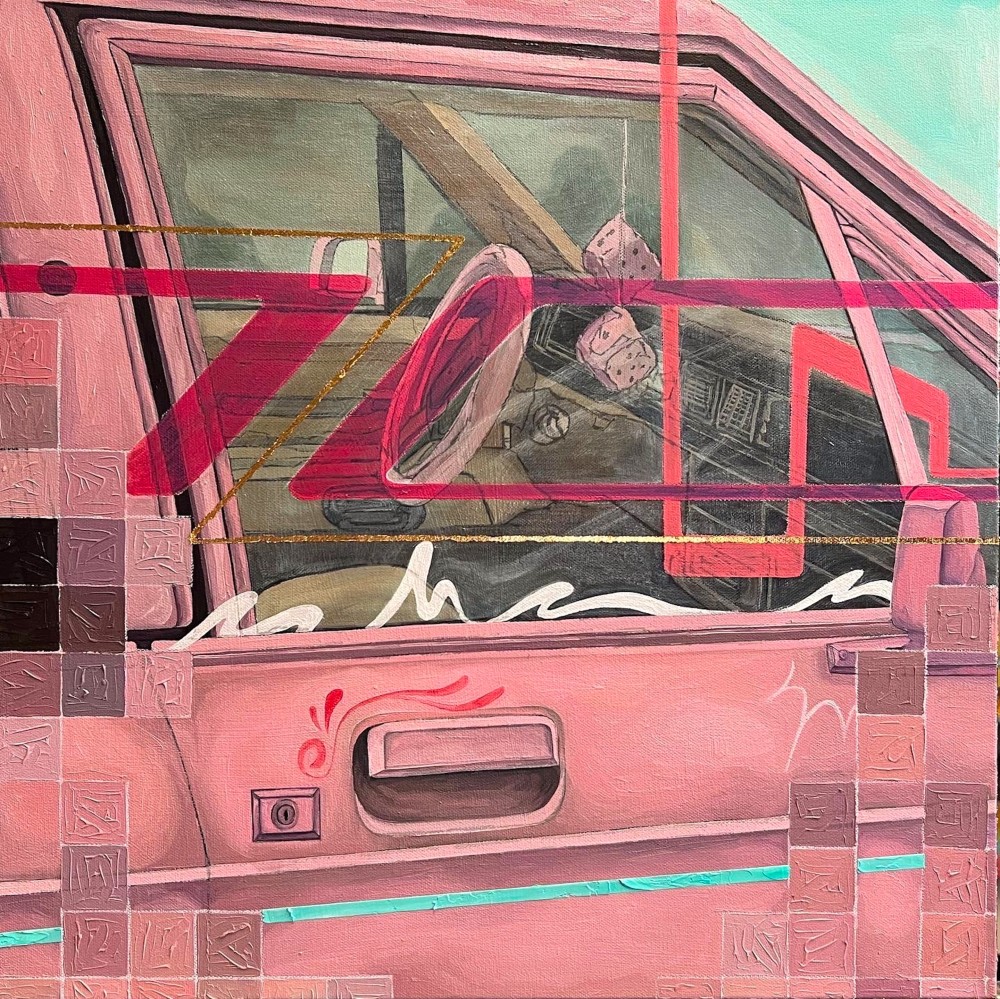
Neo-Chicano: Recuerdos de Mi Familia
Part One of the LA Futurism Summer Series
Neo-Chicano: Recuerdos de Mi Familia marks the first installment of LA Futurism, a three-part summer curatorial project exploring the evolution of Los Angeles & Chicano/a/e art in the 21st century through the lens of futurism and contemporary painting.
In Neo-Chicano: Recuerdos de Mi Familia, building on the legacy of Phantom Sightings: Art after the Chicano Movement (LACMA & UCLA Chicano Studies Research Center, 2008), this exhibition departs from overtly political mural traditions to embrace a more personal and painterly expression. It situates painting as a medium that bridges conceptual lineage and cultural reinvention—foregrounding artists who engage identity, memory, and future-making through a distinctly Los Angeles perspective.
Rooted in the dual influences of the Chicano/a/e movement and early 20th-century Italian Futurism, Neo-Chicane responds to today’s socio-political climate by reclaiming and transforming the futurist impulse. Rather than rejecting the past, this exhibition embraces ancestral memory—rituals, family, and cultural heritage—as a generative force. The visual language of the show draws on the vibrant, electrified hues of the 1960s–1980s. Colors associated with rebellion, freedom, and anti-establishment movements—to reframe the traditional Chicano/a/e palette in contemporary terms.
While Italian Futurism sought rupture and mechanized modernity, Neo-Chicano reclaims futurism as a space for inclusion, hybridity, and the reimagining of belonging. It confronts dominant American mythologies by asking: how can a movement rooted in community, resistance, and survival project itself into the future?
Little Ricky, born and raised in East Los Angeles—the historic epicenter of the Chicano movement—explores the intersection of Chicano heritage and queer identity. His work reflects a world beyond binaries, where the legacy of cultural pride collides with the freedom of fluid identity. Through bold neon palettes and unexpected visual juxtapositions, Little Ricky disrupts both nostalgic and normative narratives, imagining a future without boundaries.